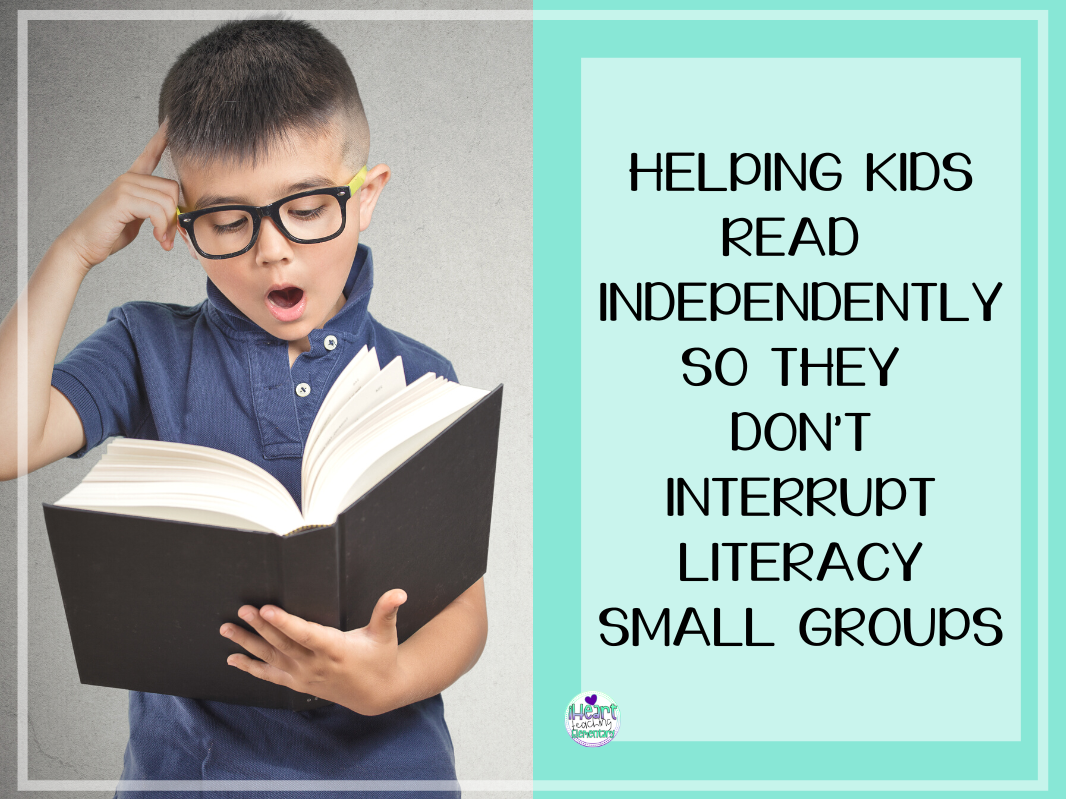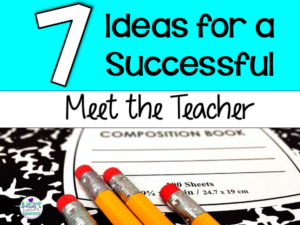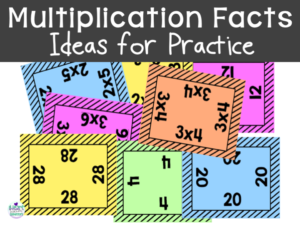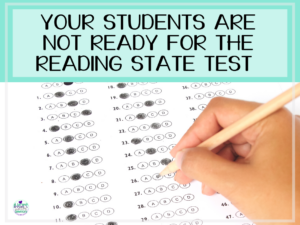Don’t want to do a lot of prep for things you want kids to do during reading small groups? Assign one thing. To read. That’s it. Sometimes they can do an independent reading task that goes with the mini-lesson that was taught and other times they can just read.
During small group time, the kids in those groups need your full attention without interruptions.
So the kids that are doing independent reading during that time are not permitted to interrupt unless it’s an emergency. This means they need to be able to read by themselves successfully. They can’t just stop and ask you what a word says or means.
I’m going to share some ways to help them do that.
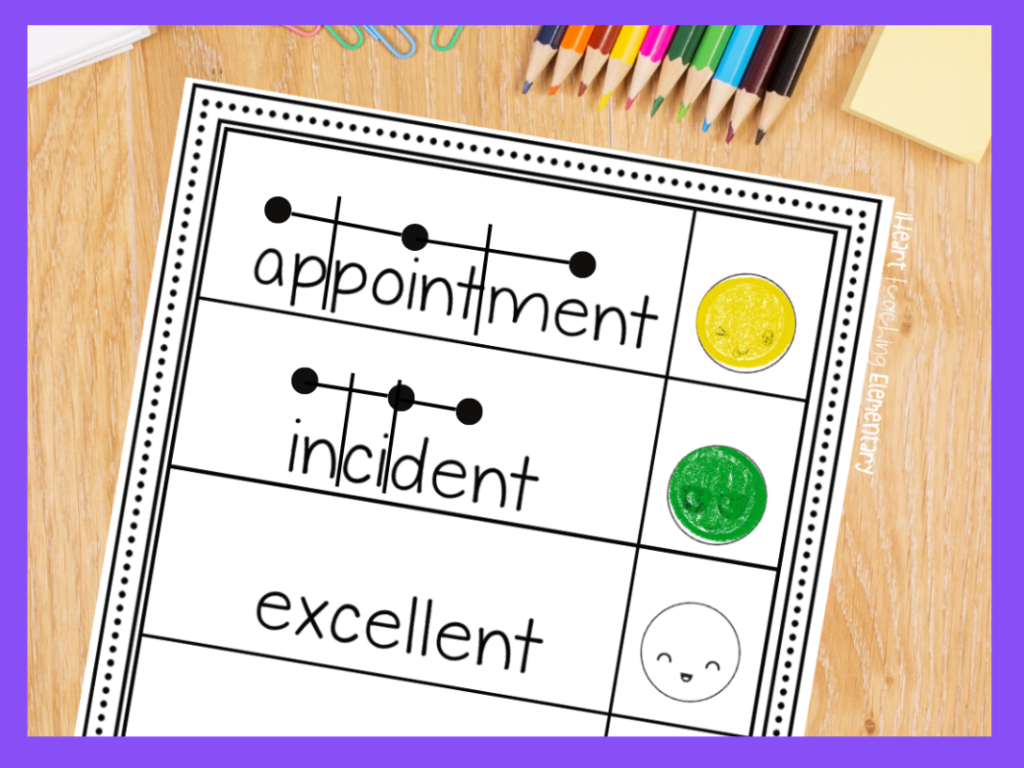
Teach How to Break Apart Multisyllabic Words
Around 2nd and 3rd grades, kids will begin to come across many multisyllabic words. They need strategies for how to break apart those big words as they read independently.
A strategy that I find very successful is what I call the spot and dot strategy. We spot the vowel sounds and dot them. Then we break them apart according to how many consonants there are between those vowel sounds.
For example, let’s look at the word magnificent. Between the vowel sounds a and i there are two consonants – g and – n. Those two consonants make separate sounds so we draw a line in between and make the first break there: mag/nificent
Then we look at the first and second i sounds. There is one consonant in between them – f. When there is one consonant we draw a line after the first vowel sound: mag/ni/ficent.
Finally, there is one consonant between the i and the e so we break it after the first vowel sound: mag/ni/fi/cent.
After breaking up the word, teach the child to sound each syllable and blend them together. This may take multiple tries the more syllables there are.
Kids can use this strategy as they read independently and come upon multisyllabic words.
Teach Mini-Lessons for Figuring Out Unknown Words
Being able to decode multisyllabic words goes hand in hand with figuring out unknown words.
After breaking apart a big word, it’s important for kids to understand its meaning. Teach mini-lessons on how to use context clues to understand word meaning.
If there are no context clues in the text, teach students how to use a dictionary whether it’s paperback or digital. The more word meanings kids know, the better their reading comprehension.
What To Do When Students Need More Assistance
Students may not be successful breaking apart a multisyllabic word or figuring out the meaning of a word by themselves.
Instead of interrupting your small group lesson, teach students to write the word on a sticky note or in their reading notebook and continue reading independently.
After small group is over, check in with students to see who needs assistance figuring out what a word says or means. This only has to take a couple of minutes and the next time they come upon those words they’ll most likely remember what it says or means.
Use an Online Dictionary
I mentioned earlier that kids can use a dictionary if their text doesn’t offer any context clues for a word.
If you’re comfortable letting kids use devices during independent reading time, they can pull up an online dictionary. Some of them allow you to click on a word and it reads it aloud.
This really supports student independence so they can be successful on their own and allows you to support other kids in the meantime.
If you’re worried about kids going to other websites during this time, you can set up one device specifically for looking up words. Place it in an area where you can observe as you conduct reading groups.
Literacy small groups is an important time that should be uninterrupted. Equally as important is independent reading time. Both work together in helping kids be successful readers.
